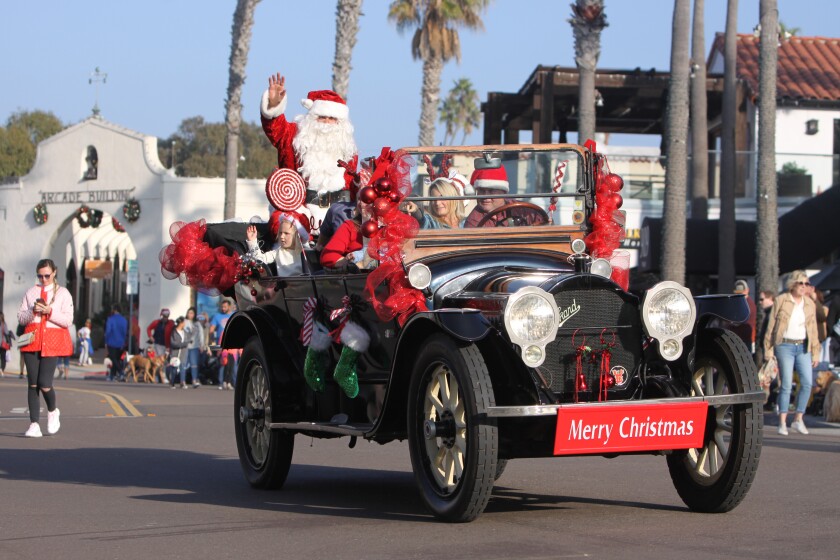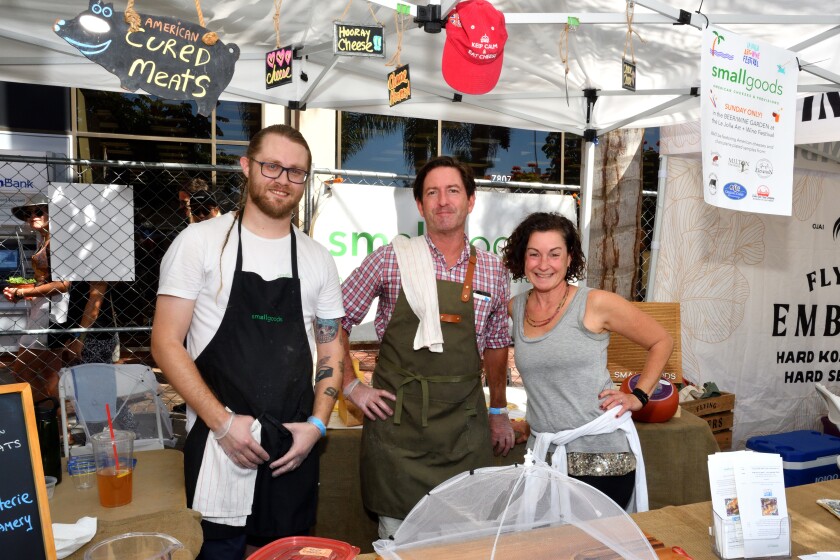Organizations that put on events in La Jolla say their work will be made harder by a city of San Diego proposal to sharply raise fees for police and other support.
More than 50 separate fees are slated to spike at least 40 percent. City officials say most of those fees haven’t been raised in many years. The increases are projected to generate $8.4 million in annual revenue for the city.
But Michael Dorvillier, chairman of the La Jolla Concours d’Elegance car show, which raises money for the nonprofit La Jolla Historical Society and is scheduled to return April 22-24 after a two-year absence, said: “I can assure you that this fee increase will have a significantly negative impact on not only our event and the La Jolla Historical Society, but also on every other charitable event in San Diego. [It] will jeopardize the future of many events. The loss of such events will equate to loss of tax-generating business for hotels, restaurants and our merchants.”
Newsletter
Get the La Jolla Light weekly in your inbox
News, features and sports about La Jolla, every Thursday for free
You may occasionally receive promotional content from the La Jolla Light.
Nonprofits around the city that organize events such as farmers markets, street fairs and annual festivals say the timing of the fee increases, which would more than double in many cases, is awful because they are already facing financial challenges from the pandemic and inflation.
Ann Kerr Bache, president of the annual La Jolla Christmas Parade, said the cost for public safety for the 2021 parade was more than $7,000.
“It’s already difficult to raise the money needed to continue the tradition” of the 65-year-old parade, Kerr Bache said. “We’ve kept going so far with continuing escalating costs to secure a special-events permit and we will keep trying to find donors to make the parade possible.”

Rolling through La Jolla on the Old Black Goose car that traditionally carries him, Santa Claus waves to onlookers during the 2021 La Jolla Christmas Parade.
(Ashley Mackin-Solomon)
San Diego officials say the increases are needed to cover the city’s costs for supervising such events, which have gone up sharply in recent years as worker salaries have risen more than 30 percent since 2019.
Officials emphasize that the increases will be phased in over three years and that nonprofits will see no spikes at all until July 2023. They also noted that they know of no other major city that gives nonprofits discounts compared with for-profit event sponsors.
The City Council’s Budget Committee voted 4-0 on Jan. 19 to forward the fee increases to the full council for a final vote next month.
A nonprofit presenting a special event would see its hourly cost per police officer rise from $55 to $89 in July 2023 and to $119 in July 2024 and beyond. Thus, a nonprofit sponsoring a parade that requires eight officers for six hours would see its cost for police climb from $2,640 now to $5,712 in 2024.
For-profit sponsors would see a spike from $100 an hour to $178 an hour, which would take effect this July.
“Charities such as the La Jolla Historical Society need to be funded to continue providing the valuable services they provide to our community,” Dorvillier said. “Our state and local governments are not able to fill this funding need. … I and many other volunteers have taken the steps to help fill those financial needs. It is especially disheartening to see that this proposed fee increase is being presented at a time when we are all just now getting back up on our feet post-pandemic.
“Our most recent invoice from the city for police fees was $8,368. If the fee increase passes, we would project the fee to be $14,072, which is a 68 percent increase.”
Kyle Meaux, a Police Department financial analyst, said the proposed rate structure “is intended to strike a balance between providing necessary public safety services and recovering costs from event organizers in an equitable manner.”
At the La Jolla Traffic & Transportation Board meeting Jan. 19, Natasha Collura, executive director of the San Diego Special Events & Filming Department, said that while public safety fees are handled by the Police Department, other fees for special events — those that are in the public right of way — also will be increasing.
The application processing fee is “going from $150 to $279. That’s a one-time fee for applications,” Collura said. She added that the fee was established in 2003 and has not increased since.
Collura said late fees for applications submitted within 60 days of an event also will rise, from $10 per day to $37 per day.
Laurel McFarlane, president of the San Diego Event Coalition, said events generate tax revenue for the city and attract tourists who generate even more revenue.
That was echoed by Dorvillier, who added that “these events support the local communities and small businesses directly. During Concours week, the hotels in La Jolla will be sold out, dinner reservations booked up and galleries and other retailers will have abnormally large amounts of foot traffic. … This is a community event as much as it is an event for the La Jolla Historical Society.”

Devon Daines and Mike and Jenny Eastwood of Smallgoods work the 2021 La Jolla Art & Wine Festival.
(Vincent Andrunas)
Sherry Ahern, founder of both the weekly La Jolla Open Aire Market and the annual La Jolla Art & Wine Festival, could not immediately be reached for comment.
Jodi Rudick, executive director of the La Jolla Village Merchants Association, said, “We love the energy most events bring to La Jolla and hope these increased fees are not a burden to nonprofit organizations.”
As for her group, Rudick said LJVMA focuses on promotions that are self-guided and do not involve “street closures or large crowd gatherings that might require public safety modifications.”
She added that “if any of our events were to evolve in such a way that permits were required, we would budget based on the new fees.”
Examples of other proposed city fee increases include annual fees rising from $248 to $338 for massage therapists, $1,428 to $1,943 for strippers, $346 to $442 for pawn shops, $1,606 to $2,039 for firearms dealers, $165 to $225 for bowling alleys and $141 to $182 for tobacco retailers.
City Councilwoman Vivian Moreno said she sympathizes with those affected but that San Diego must recover its costs.
“I do understand the concerns raised by members of the public … however, our user fees have not been updated in some time and the cost to the city for these services has to be accounted for on some level,” she said. “I want to be clear here. The city is not making money. We’re covering costs and, in some cases, we’re not recovering the costs fully.”
Council President Sean Elo-Rivera blamed city officials from the past.
“This is part of the problem when fees don’t get raised on a more gradual basis,” he said. “We are put in a position where we either approve what feels like huge increases in fees or we continue down the path of not recovering costs. This is a classic example of what happens when the can gets kicked down the road.” ◆


More Stories
Cassie Stephens: Clay Mugs for Kids!
Beyond the Wall Text: Contextualizing Carpeaux’s Why Born Enslaved! | by Cleveland Museum of Art | CMA Thinker
Carl and Karin Larsson. Part 1. – my daily art display